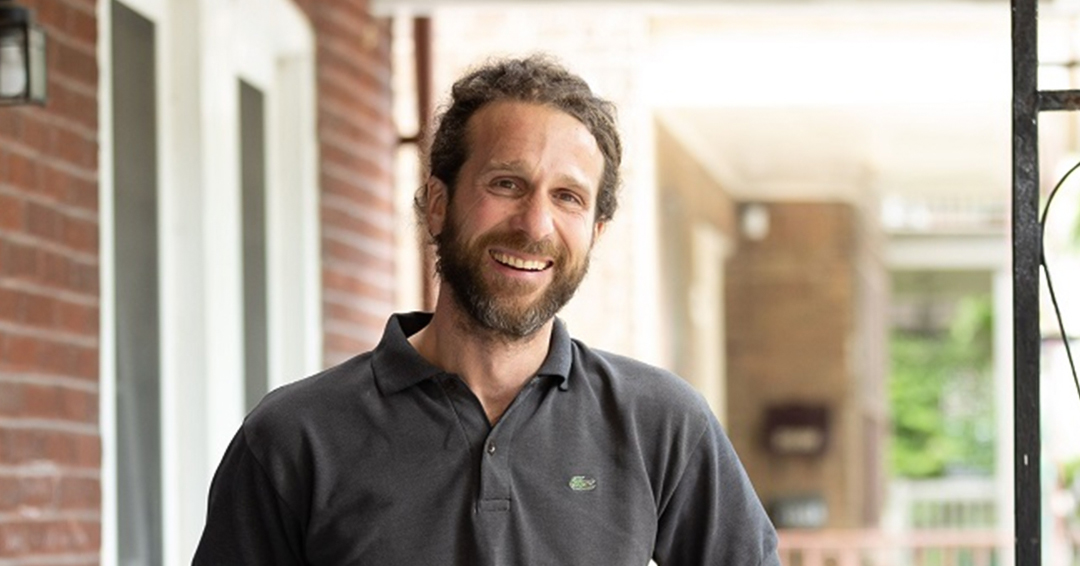
A significant chunk of David Kaiser’s job involves imagining all the things that could go terribly wrong in Montreal – and the effects that those calamities could have on the health of the people who live here.
Kaiser, BSc’03, MDCM’09, MSc’13, is the deputy medical director at Montreal Public Health and oversees its emergency preparedness unit.
His role involves working with a variety of provincial and regional stakeholders (including the City of Montreal) and community groups to develop and define a vision and strategies for public health intervention. The unit also works closely with specialists at Montreal Public Health with different areas of expertise – in infectious disease, youth health, and environmental and occupational health, for instance.
“Our vision is based on a collaborative approach that turns the classic top-down approach to emergency management on its head,” says Dr. Kaiser. “We need to include citizens and communities in all aspects of emergency planning and management. We need to have confidence that if we invite diverse voices to the table, our decisions will be better, and our actions will have more impact.”
His team plans to create a citizens’ council to promote more public awareness of his unit’s work and to give Montrealers the opportunity to share their thoughts on what needs to be done.
“We see in all kinds of emergencies, including heat waves, that the measure of success is not so much whether we have a good plan,” says Dr. Kaiser, “as, do we have a population that knows how to react, with social networks that engage when there is an emergency and are able to take care of people when they are vulnerable? Do we have a population that has confidence in their public institutions?”
After completing his medical studies at McGill, and then earning a master’s degree in epidemiology from the University, Dr. Kaiser began working at Montreal Public Health in 2014, starting out on the environmental health team, of which he became medical chief in 2018. In October 2022, he was promoted to deputy medical director at Montreal Public Health and his focus shifted to emergency preparedness.
As he plans for the possibility of future crises, a public health emergency that began in 2020 is obviously still very much on his mind.
“Coming out of COVID – or suffering through COVID – we saw the need to rethink our emergency planning and management structure internally, to be more efficient, effective, and not burn everybody out in the process,” Dr. Kaiser says.
While Dr. Kaiser’s role at Montreal Public Health has changed, his interest in environmental health hasn’t waned. There is a growing awareness in medical circles of how environmental factors have a major impact on our health, but Dr. Kaiser believes that there is still much work to be done on that front.
“When we’re talking about air pollution, we know that fine particles lead to respiratory disease, to cancer,” he says. “But thinking about preserving and restoring biodiversity in a city as a legitimate public health target is not there yet. Noise is another example. [It has] clear health impacts. We’re quite behind Europe on [thinking about] this. Housing affordability is a health issue. If you are paying too much for your rent, you aren’t eating as well as you should, and that has a direct impact on your health.”
Dr. Kaiser views health issues through a holistic perspective and that might owe something to the very first degree he earned at McGill. Majoring in environmental sciences, Dr. Kaiser pursued his degree at the nascent McGill School of Environment, now the Bieler School of Environment. His studies covered social sciences, history, geography, applied ecology and conservation biology. He views the experience as fundamental to the interdisciplinary approach he now champions as a public health official.
“I remember very well studying about ecosystem services,” says Dr. Kaiser. Thanks in part to an influential article about the value of ecosystem services published a few years earlier in Nature by ecological economist Robert Costanza, it was becoming a hot topic at the time.
Dr. Kaiser believes that ecosystem services are a valuable framework for making the connection between environment and health.
“Think about tree planting. Think about green spaces in the city. Think about using natural infrastructure to protect against flooding. In public health, we’re slowly getting to the point where we recognize biodiversity as a valid object – not just access to green space or small elements of that kind, but really thinking about ecosystem health as an objective.”
Dr. Kaiser grew up on a dairy farm in the countryside, in the town of Saint-Armand, an hour from Montreal and near the Canada-U.S. border. After completing his undergraduate degree at McGill, he spent a summer in the Appalachians collecting plants with a field botany graduate student, and then briefly worked at a bed and breakfast for snowmobile tourists in the winter (“The only job I ever got fired from!” Dr. Kaiser laughs).
He applied to McGill’s Faculty of Medicine and Health Sciences in 2005 “on a whim, for reasons that are beyond my comprehension.” Dr. Kaiser eventually gravitated towards the field of public health, bringing to his work the underlying interest in the environment he had been cultivating since early childhood.
As the program director for McGill’s Residency Training in Public Health Program, Dr. Kaiser is trying to develop an approach that takes into account another factor that medical authorities increasingly recognize as having an important influence on how patients experience care. Many patients have dealt with some form of trauma in their lives.
“The first step … is to recognize the ubiquity of trauma,” says Dr. Kaiser. “If we want to work towards a better future, we need to first engage with the past. The goal is to apply a trauma-informed lens to all aspects of our program – from the admissions process to interactions with patients and citizens, to evaluation and feedback, and mentorship and peer support.”
